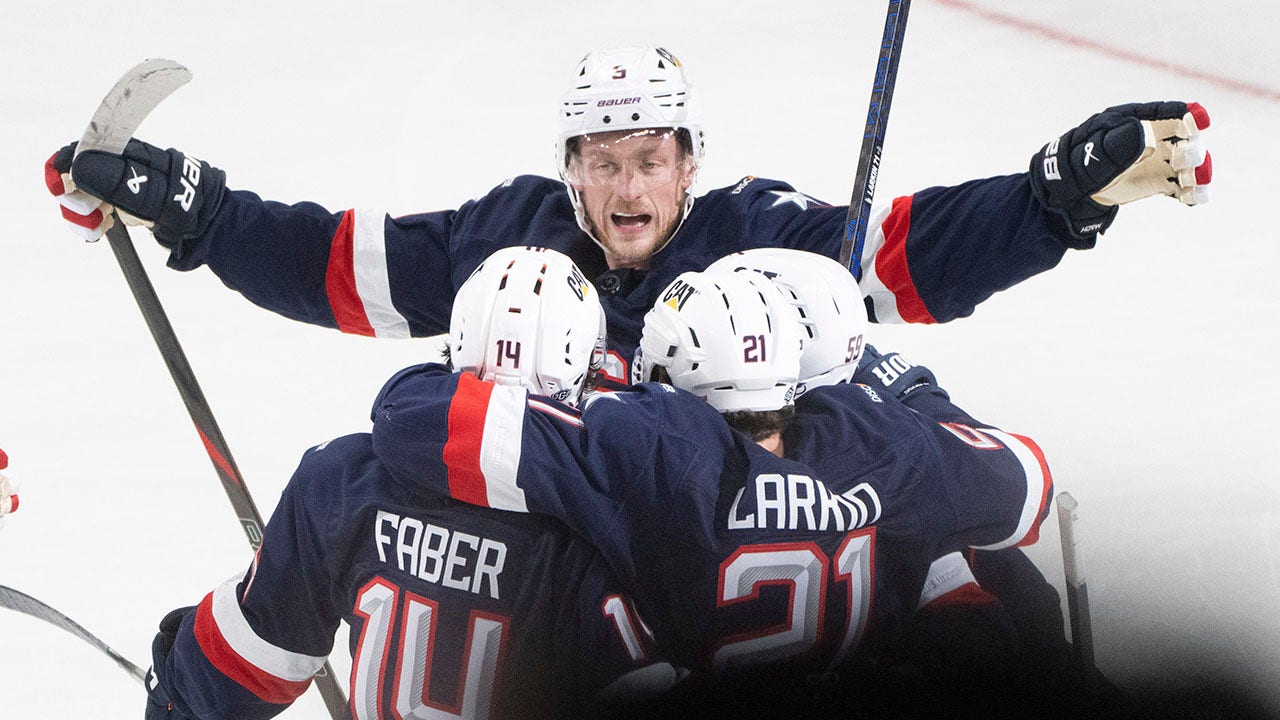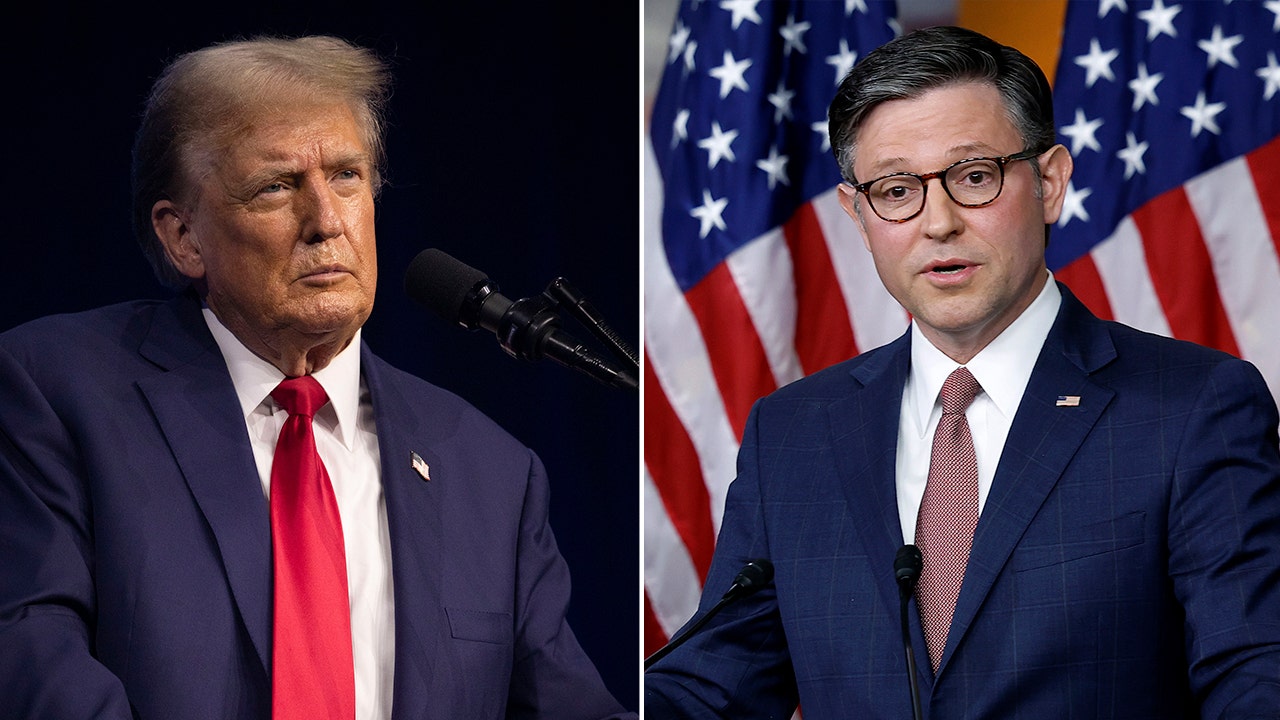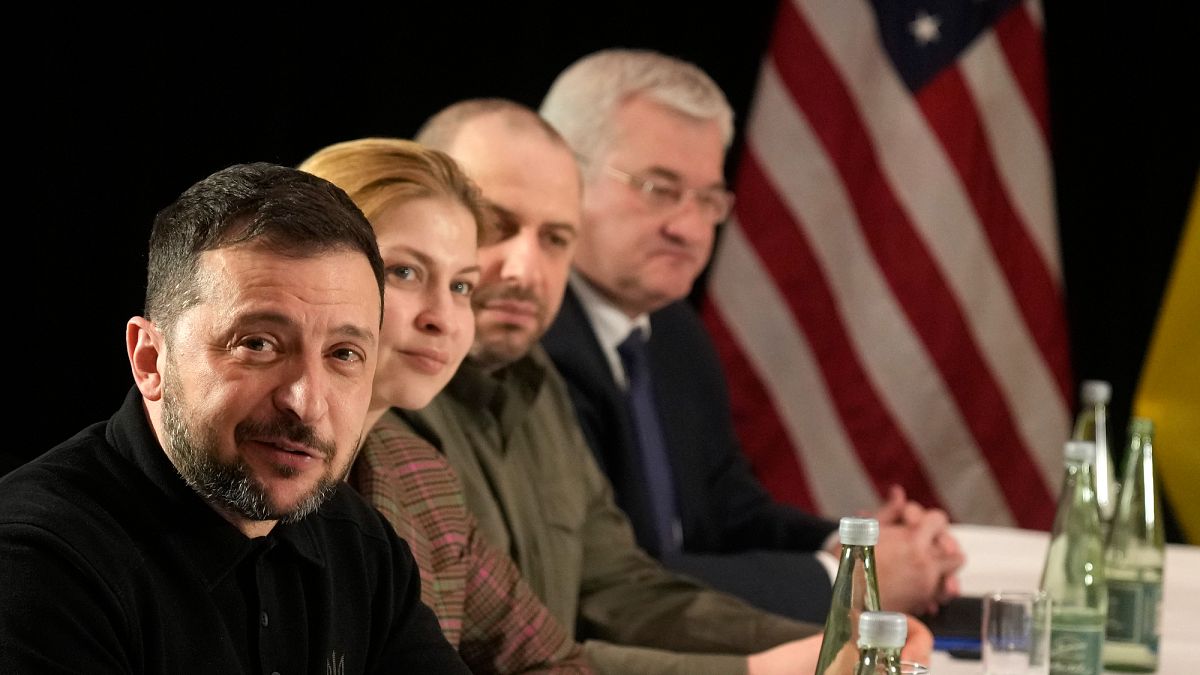Investors are watching closely as European leaders hold an emergency meeting on regional security.
Shares in European defence companies rallied on Monday as European leaders met to discuss Ukraine and regional security.
Italy’s Leonardo showed gains of around 5.27% in daily trading as of around 11am CET, while shares in Germany’s Rheinmetall were up 7.83%.
Germany’s Hensoldt was up 9.81%, Sweden’s Saab recorded a 10.34% gain, while France’s Thales saw an increase of 4.72%.
Increased investor interest comes as European leaders are working on a new defence package to support Kyiv, although details have not yet been announced.
Politicians from across the region are meeting in Paris to discuss Ukraine, as concerns mount that the US will leave the EU out of negotiations.
Expected attendees include leaders from Germany, the UK, Italy, Poland, Denmark, Spain, and the Netherlands.
European Commission President Ursula von der Leyen, European Council President Antonio Costa, and NATO Secretary General Mark Rutte are also expected to attend.
The Trump effect
Since his inauguration, US President Donald Trump has shifted the narrative around Russia’s war in Ukraine, pushing for a speedy end to the conflict.
Trump said on Sunday he believes he could meet “very soon” with Russian President Vladimir Putin to discuss ending the war, following a lengthy phone conversation with President Putin.
The US secretary of state Marco Rubio, meanwhile, confirmed that he would meet Sergey Lavrov, his Russian counterpart, in Saudi Arabia this week.
Keith Kellogg, the US special envoy to Ukraine, has said that European leaders would not be included in any discussions between the US and Russian over ending the war.
Kellogg argued that previous negotiations had failed because too many parties had been involved.
Munich Conference
The defence stock rally also came after comments made at the Munich Security Conference, which lasted from Friday to Sunday.
During the event, NATO Secretary General Mark Rutte said the alliance’s spending target would be “considerably more than 3%” of GDP, up from its current target of 2% agreed upon in 2014.
Rutte added that NATO members would need to commit to a “strong timetable”.
European Commission President Ursula von der Leyen, meanwhile, told the conference EU member states currently spend a combined 2% of their GDP on defence.
She stressed that this investment would need to increase by “hundreds of billions of euros” every year.
An army of Europe
The comments from Rutte have put a “rocket underneath defence stocks”, said Russ Mould, investment director at AJ Bell.
“Shares in defence companies had already rallied hard since Russia invaded Ukraine as investors took the view that the shocking events would spur governments around the world to fortify their own defences,” said Mould.
“Rutte’s comments effectively confirm this line of thinking and have acted as another share price catalyst, even though markets had already priced in a stronger earnings environment for the sector,” he added.
In January, Trump urged NATO’s European members to spend 5% of their national income on defence, arguing that the US is taking an oversized responsibility for maintaining peace in the region.
Speaking during the Munich Security Conference, Ukrainian President Volodymyr Zelenskyy called for the creation of an “army of Europe”, alluding to weakening US support.
Zelenskyy clarified that he would not accept a peace deal negotiated without Ukrainian involvement.



